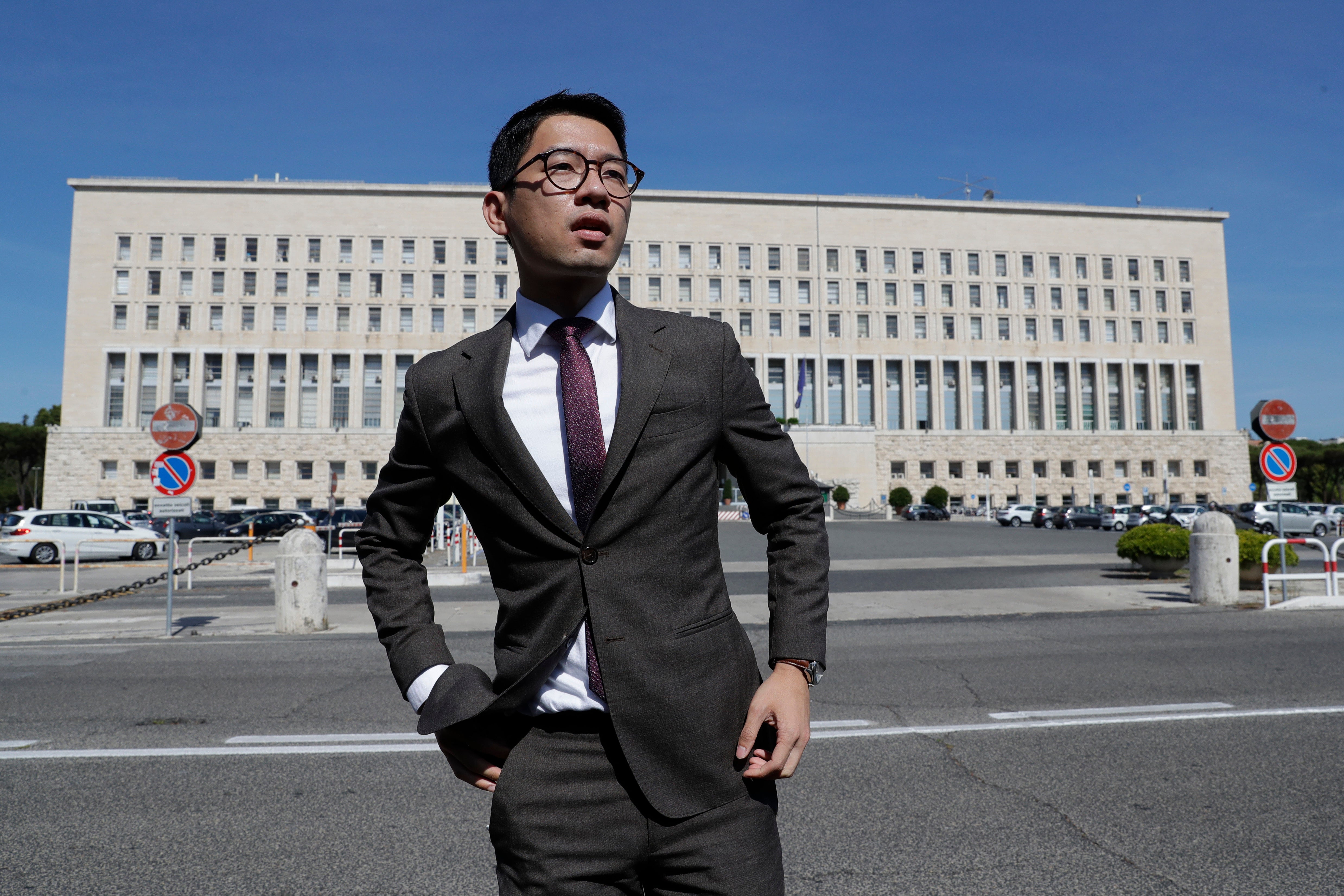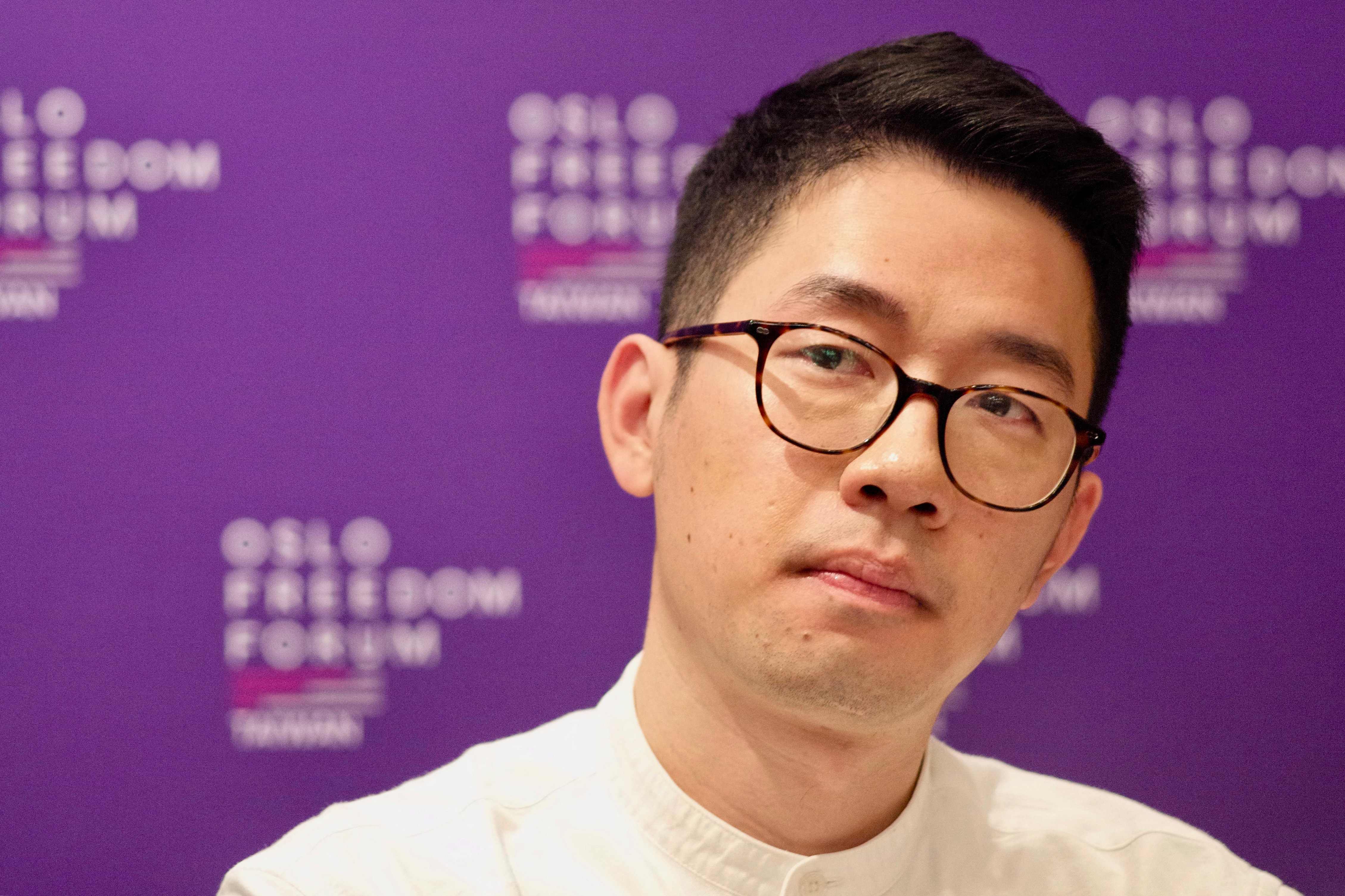Hong Kong activist in UK exile fears he could be kidnapped after £100,000 bounty put on his head
Prominent pro-democracy campaigner Nathan Law opens up to Maroosha Muzaffar about the rising threat of abduction – and how he won’t stop speaking out against the erosion of Hong Kong’s freedoms by Beijing

One of the most prominent members of Hong Kong’s pro-democracy movement says the threat of “cross-border abduction” is “getting higher and higher” after a bounty worth HK$1m (£100,000) was offered for his arrest.
The Hong Kong police declared this week that it was offering a bounty for any information that could lead to the arrest of eight overseas activists, former lawmakers, and lawyers. The city’s top leader John Lee emphasised that the dissidents will be “pursued for life” under the Beijing-imposed National Security Law, which outlaws subversion, secession, collusion with foreign forces and terrorism.
One of them, Nathan Law, 29, lives in exile in the UK. The 2018 Nobel Peace Prize nominee tells The Independent that there is a heavy mental toll as the threats step up – calling the bounty for each of the dissidents “unprecedented”.
“Of course, the fact that the bounty is out there is a signal of the [Hong Kong] government stepping up intimidation,” he says.
“So the possibility of me facing a kind of cross-border abduction is getting higher and higher, just because of how diligent and aggressive the stance of the Chinese government is.”
However, he adds that any such risk will not stop him from using his voice: “I’ll continue to speak up for the fellows of Hong Kong and the freedom of Hong Kong.”
Law says he has become “extremely saddened” that the region is changing for the worse.
“I don’t think there’s anyone in the history of Hong Kong that has had that kind of treatment before... like it is unprecedented. No political figures got a bounty on their heads,” Law says, revealing how the announcement makes him feel “a bit nervous” about the possibility of abduction.
Hong Kong’s police have maintained that the eight dissidents, seven men and one woman aged between 26 and 74, continue to threaten national security and seek to “destroy Hong Kong and intimidate officials” by encouraging international sanctions.
Ex-legislators Dennis Kwok, Ted Hui and Law, unionist Mung Siu-tat, lawyer Kevin Yam, activists Finn Lau, Anna Kwok and Elmer Yuan are all currently overseas. Hundreds in Hong Kong have been arrested and convicted under the National Security Law, which was imposed in 2020.
Law, whose full name is Nathan Law Kwun Chung, says freedoms in Hong Kong are now “extremely limited” and hopes more attention is given to make authorities “accountable”.
After the bounty announcement, China accused the UK – where Law fled in 2020, being granted asylum a year later – of sheltering fugitives. The statement from its London embassy came after the UK announced it would not tolerate any attempts by China to silence individuals in the UK or overseas.
“I am a political refugee in the UK. I got the asylum two years ago. So I am seen as someone who would be unjustly persecuted if I returned to Hong Kong,” Law tells The Independent.
“It is really clear that the UK government is exercising its commitment to the Geneva Conventions. It is just the UK government upholding universal values and its basic commitment to human rights.
“So for me, the UK government has been doing a lot in terms of trying to protect people who will face persecution, and also political suppression from the Hong Kong government.”
None of the countries where the eight dissidents currently live – the US, the UK and Australia – have any extradition treaties with China.
So Hong Kong’s authorities have urged the activists to return and face trial – which Law says is “unlikely”.
Law founded the pro-democracy Demosisto Party and ran for the legislative council election in 2016, becoming the youngest lawmaker in Hong Kong's history. He was later disqualified by Hong Kong’s High Court in July 2017 for having taken the oath of office improperly.
As a mark of protest against Beijing, Mr Law quoted Mahatma Gandhi before taking his oath: “You can chain me, you can torture me, you can even destroy this body, but you can never imprison my mind.”
Law was jailed in late summer 2017 for his participation in pro-democracy protests in 2014, popularly known as the Umbrella Movement. He was released in February 2018 after an appeal against the custodial sentence.
In 2020, as the National Security Law came into force, Law fled Hong Kong, but continued to speak out.
In July of that year, he told US lawmakers during a Congressional hearing on Hong Kong that he was worried about returning.
“Merely speaking about the plight of Hong Kongers on an occasion like this, contradicts the new national security law. So much is now lost in the city I love – the freedom to tell the truth,” he told American politicians via video.

Since fleeing Hong Kong, Law penned a book with coauthor Evan Fowler, titled Freedom: How We Lose It And How We Fight Back.
Earlier this week, Hong Kong’s secretary of security called Law a “modern-day traitor”. Chris Tang Ping-keung on Tuesday accused the activist of “acting like a cowardly turtle hiding its head and... indulging in a lavish life in a foreign country, while young people incited by you in Hong Kong are left to bear the legal consequences”.
When asked how he feels about the accusations, Law says, “Well, I think it’s absolutely absurd.”
“What I’m doing is to urge the Chinese government to uphold its treaty with the British government to achieve its promises of implementing autonomy, freedom and democracy in Hong Kong,” he says.
Law claims his work has always been about holding “the regime accountable”. In a statement posted on his social media, he said he will not “live in fear”.

Under the National Security Law, Beijing is accused of basically having the power to punish dissenters and silence critics – fundamentally changing the lives of Hong Kongers.
In the wake of the bounty announcement, more than 50 Hong Kong civil organisations the world over have called on the UK, US, Canada, Australia, New Zealand and Europe “to reiterate that the Hong Kong National Security Law does not apply in their jurisdictions, and condemn the latest arrest warrants and bounties”.
“Hong Kong activists in exile must be protected in their peaceful fight for basic human rights, freedoms and democracy,” the civil organisations said in a joint statement.
Law, meanwhile, is trying to live life as “discreetly” as possible.
“I’ve been told by the National Security Bureau [in China] that I am a wanted man for three years now. But having a bounty on my head is... it’s kind of like a new experience.”






Join our commenting forum
Join thought-provoking conversations, follow other Independent readers and see their replies
Comments